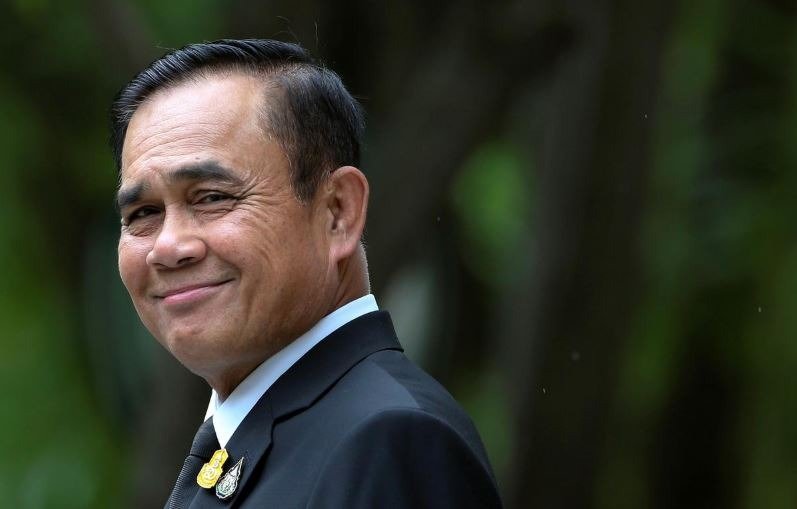Prayuth orders an end to military rule in Thailand
Thai junta chief Prayuth Chan-ocha on Tuesday ordered an end to military rule before his new civilian government is sworn in, but kept the power to let security forces carry out searches and arrests unchallenged.
Since Prayuth took power in a 2014 coup, his junta has issued more than 500 orders under the so-called Article 44 – dubbed the “Dictator’s Law” by detractors – that allowed him to bypass Thailand’s laws.
He is due to become a civilian prime minister after being picked by junta-appointed senators and the lawmakers who were elected in a March 24 vote that his opponents said was rigged against them.
Prayuth’s order on Tuesday, which he said would be the junta’s last, ended restrictions on the media and transferred civilian cases from military to civilian courts.
“I won’t be using Article 44 any more,” Prayuth told reporters at Government House in Bangkok. “These orders did not cause problems, they were done to fix problems.”
But the government said some orders introduced under the junta would continue: For example, giving the army and police the freedom to search, summon, and detain people for seven days as long as it is in the name of national security.
“The military keeping the power to detain people is significant,” Yingcheep Atchanont, a programme manager at iLaw, a Thai legal monitoring grou, told Reuters. “This maintains the climate of fear.”
Deputy Prime Minister Wissanu Krea-ngam said that some of the junta orders would remain because they are necessary, but that parliament could change them.
The coalition backing Prayuth, which consists of 19 parties, has a small majority in Thailand’s lower house of parliament.
The military government has been gradually relaxing political restrictions since last year. Prayuth said that his new government will be in place by the middle of this month




